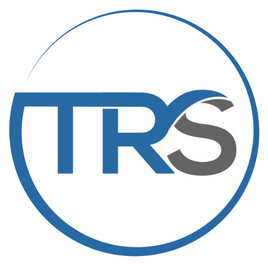What is the future of blue-collar work in Australia in 2022?
Industry Spotlight Updated in 2022: What is the future of blue collar work in Australia in 2022? Blue-collar workers are a valuable necessity to Australia’s economy. As a nation, we would suffer without our manufacturers, miners and truck drivers just to name a few. You might be looking to hire staff in the blue-collar sector,…

Industry Spotlight Updated in 2022: What is the future of blue collar work in Australia in 2022?
Blue-collar workers are a valuable necessity to Australia’s economy. As a nation, we would suffer without our manufacturers, miners and truck drivers just to name a few. You might be looking to hire staff in the blue-collar sector, or you’re a technical blue-collar worker looking for your next role.
Either way, it’s worth knowing what lies ahead for the future of blue-collar in Australia. As we head into the final stretch of 2022 and are now living with Covid-19, Australia’s labour landscape is shifting. Want to know the forecast of the technical blue collar workforce in Australia? Keep reading to find out more.
Blue collar workers – who are they?

Blue-collar workers are those who are employed in manual labour work. They form the foundation of industrialisation, in history, in the present and into the future. They build and maintain many of the objects and structures we rely on in everyday life: cars, buildings, homes, technology, trucks, trains and roads are just a few of them.
Which industries hire blue collar workers?
Trades workers can find employment in diverse environments across Australia – whether it’s a remote offshore rig or a big city construction site, there’s something for everyone.

Some of the most common industries that hire blue-collar trades workers are: employed in Australia are:
- Trades & Services
- Construction
- Heavy and Civil Engineering Construction
- Manufacturing
- Mining
- Transport Logistics
- Defence, Emergency & Security
- Agribusiness & Farming
- Warehousing
- Food Processing
- Utilities (electricity, gas, water and waste services)
What does the future of the blue collar workforce look like?

In 2020, the Covid-19 pandemic caused the loss of thousands of blue-collar and white-collar jobs. However, many of those white-collar workers who typically work in an office environment were able to continue from home. It took a world health crisis for many to realise the necessity of the blue-collar workforce because working from home simply isn’t possible for technical blue-collar work. Jobs that require physical abilities and hands-on work will always be an important part of our economic landscape.
In 2022, living post-lockdown, construction and manufacturing projects are now back in full swing across the nation. The demand for skilled blue-collar workers is high and there are many jobs available with highly competitive pay.
So, what’s in store for the blue-collar industry now, and our future in resourcing, state and national frameworks?
- Lockdown or not, the Australian government recognises the importance and necessity of the blue-collar workforce as a key driving force behind our nation’s future growth
- Most jobs are full-time, and many have large amounts of overtime available
- Many blue-collar jobs are in high demand, see 13 of the top jobs with salaries at Indeed
Competitive wages to combat skill shortages

With a track record of the blue-collar workforce not only keeping the economy going but enhancing it – it makes sense that these positions should attract competitive remuneration. It was recently reported that Melbourne tradies in the construction industry are the seventh-highest paid in the world. Low levels of unemployment are also contributing to this phenomenon, with the ABS reporting that the unemployment rate fell to 3.5% in July 2022.
As such, here are 9 in-demand blue-collar jobs in Australia:
- Sheetmetal Trades Worker
- Metal Fabricator
- Pressure Welder
- Welder (First Class)
- Electrician (General and Special Class)
- Agricultural Mobile Plant Operator
- Diesel Motor Mechanic
- Fitter
- Metal Machinist (First Class)
These jobs are listed as in a national shortage with strong future demand on the National Skills Priority List. Many other skilled trades are also experiencing record high demand, especially in the construction industry.
Contact the experts in Blue-Collar Labour Hire and Recruitment
TRS Resourcing is the Perth and Melbourne recruitment agency you can count on to source casual staff or permanent staff for your blue-collar labour hire requirements.
Are you a candidate? VIEW OUR CURRENT ADVERTISED JOBS.
Are you a client? DISCOVER THE TRS RESOURCING DIFFERENCE.
To speak with TRS Labour Hire Recruitment Consultants please contact the following offices:
Labour Hire Melbourne 03 9917 3545
Labour Hire Perth 08 6205 3570

You can read more about the Recruitment Industry and learn more insights from the team at TRS Resourcing. From guidance and encouragement to job seekers to support for Australian business owners – we’ve got you covered.
READ MORE RECRUITMENT INDUSTRY INSIGHTS HERE
